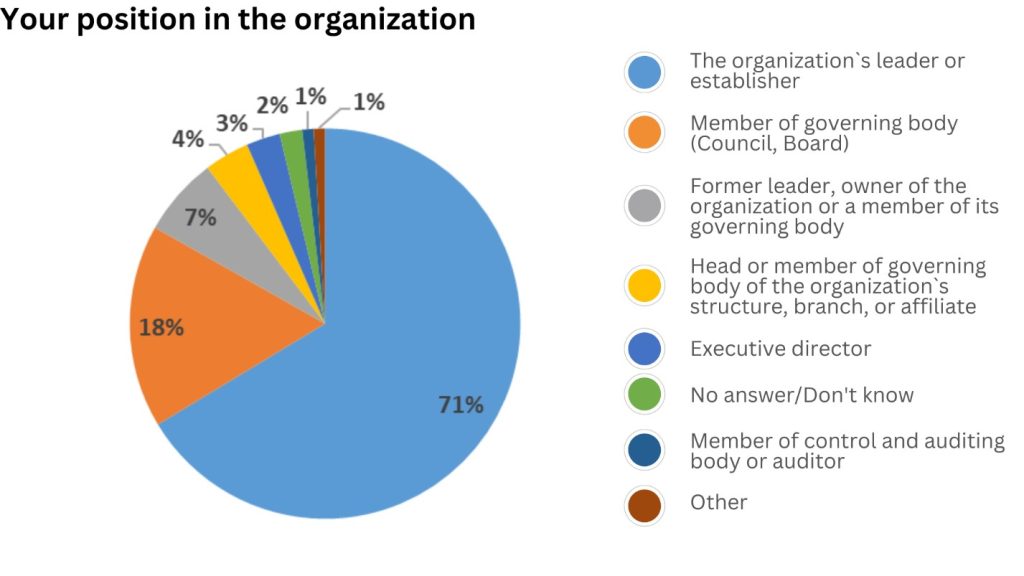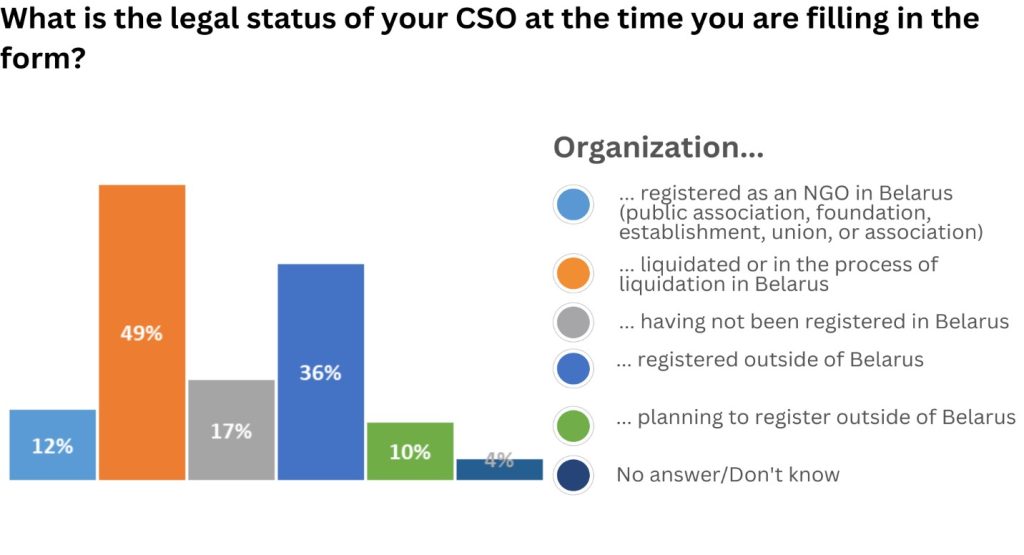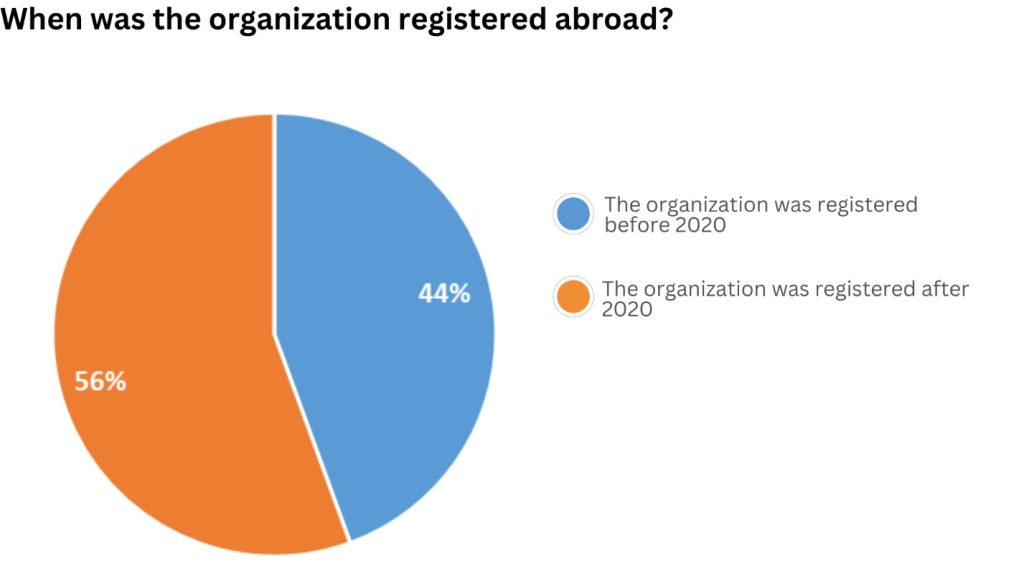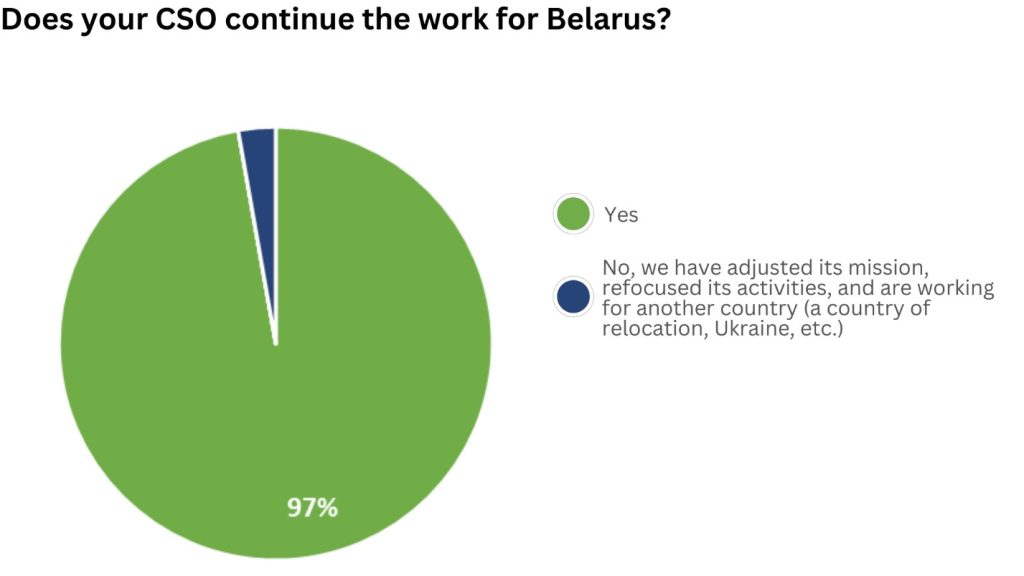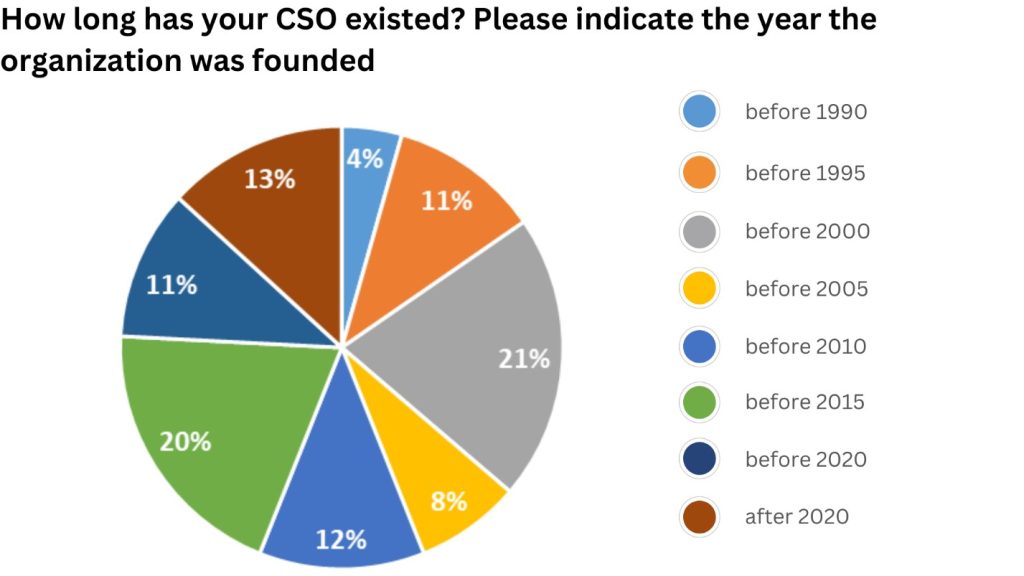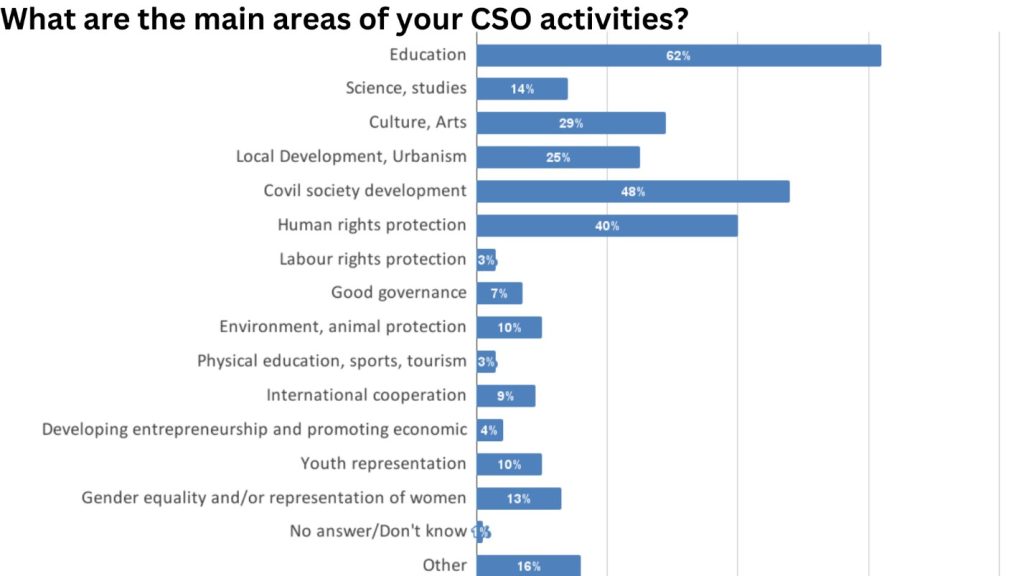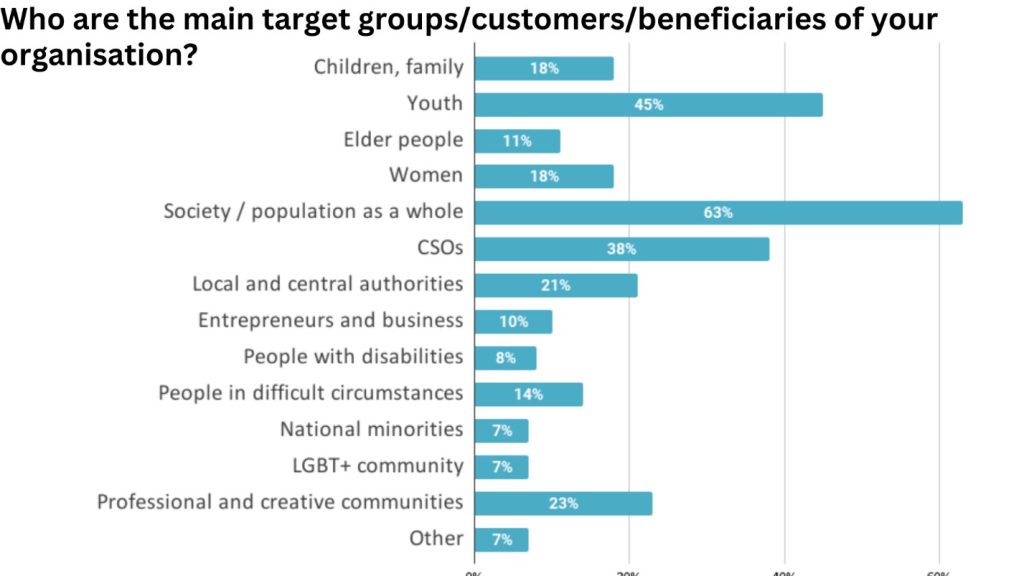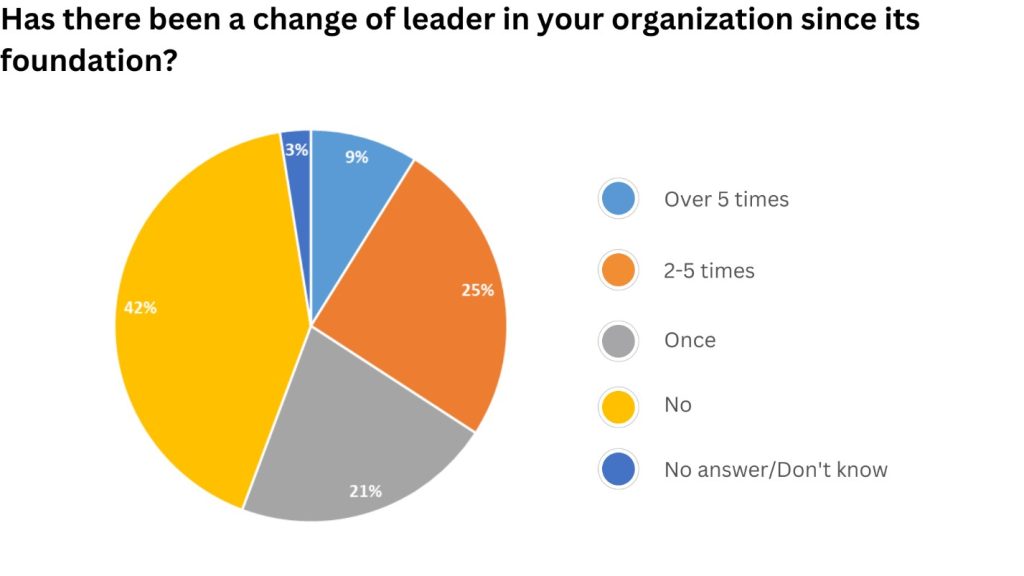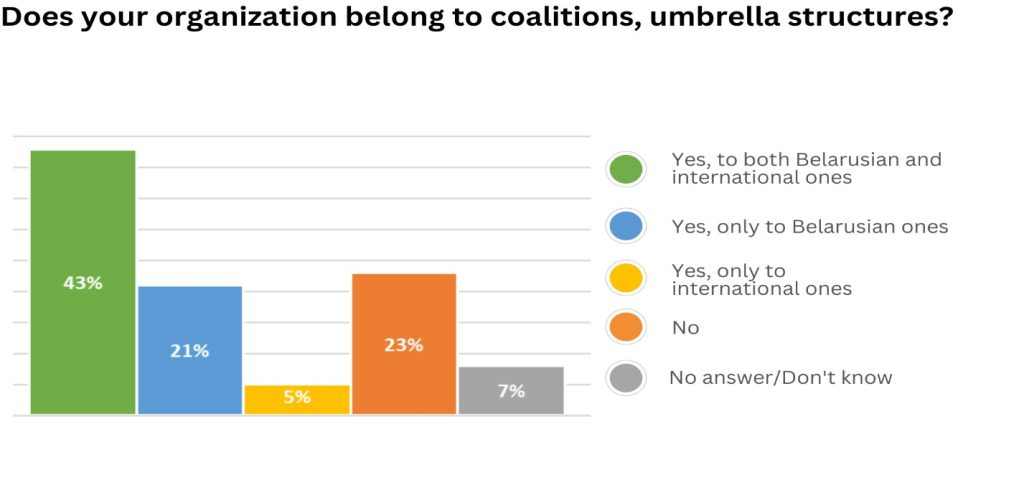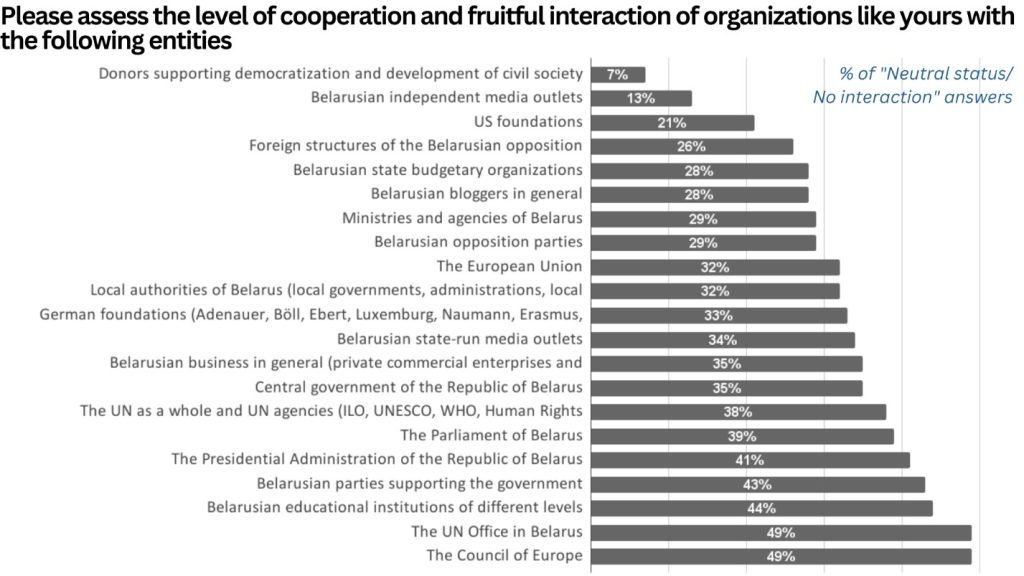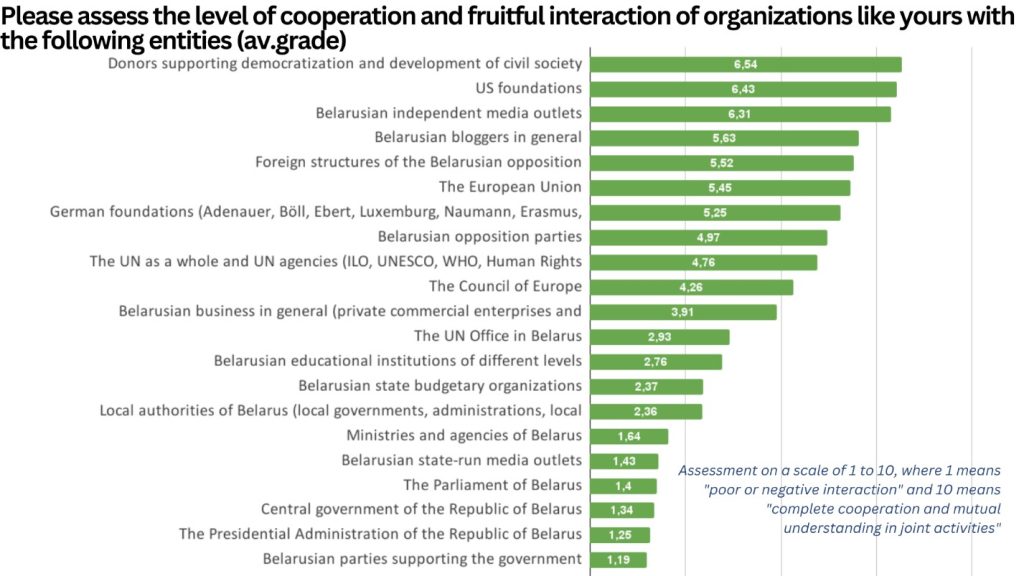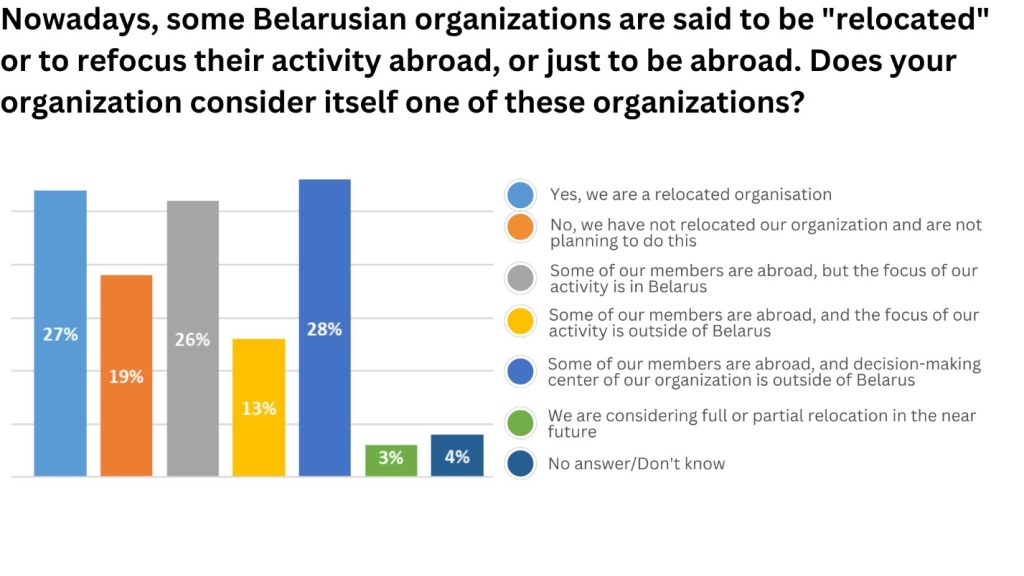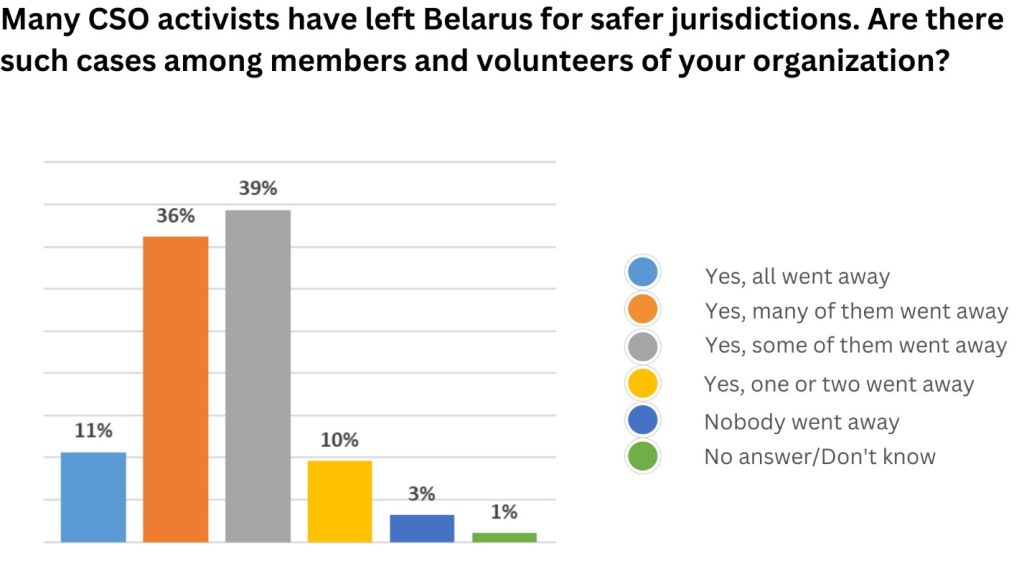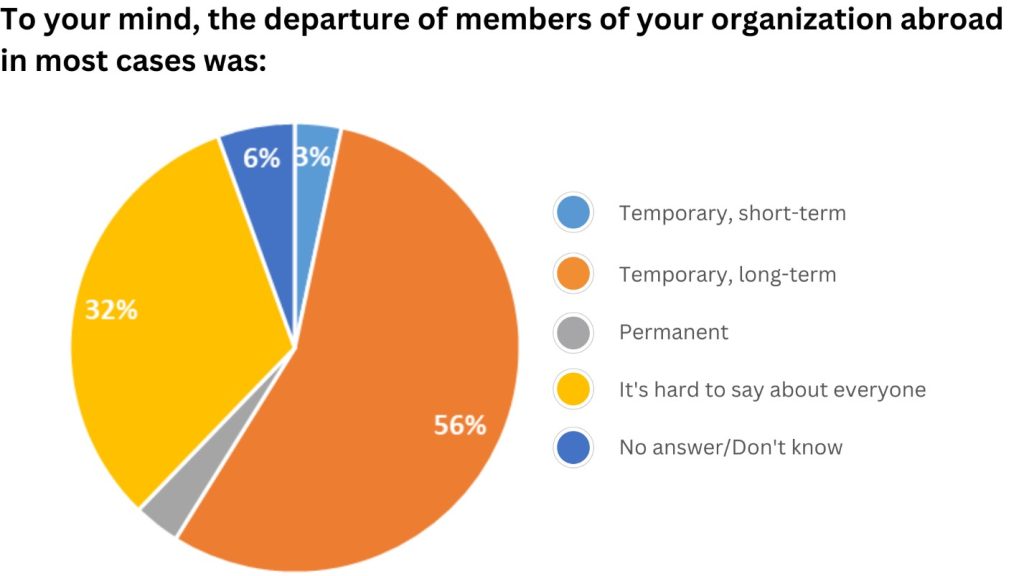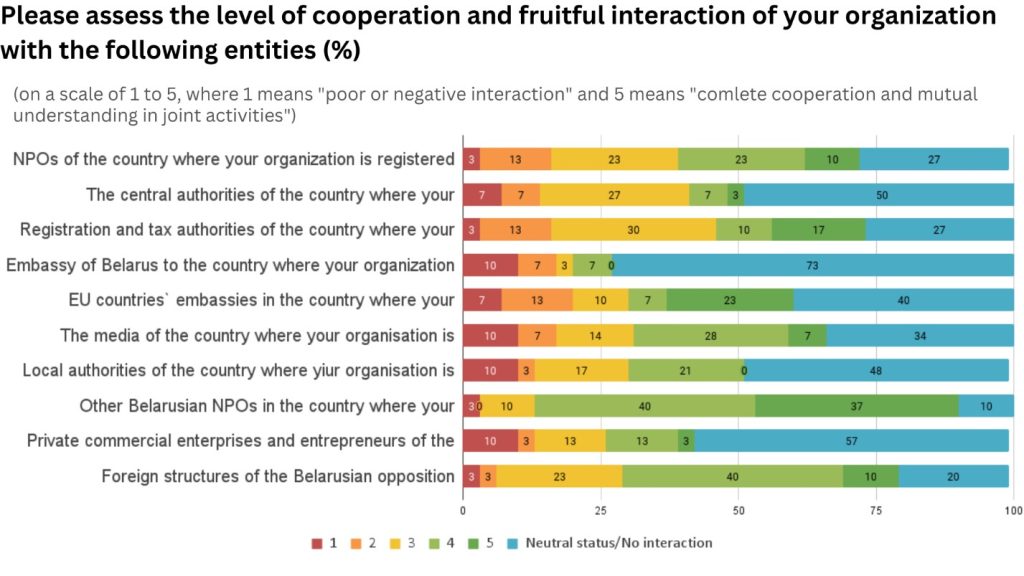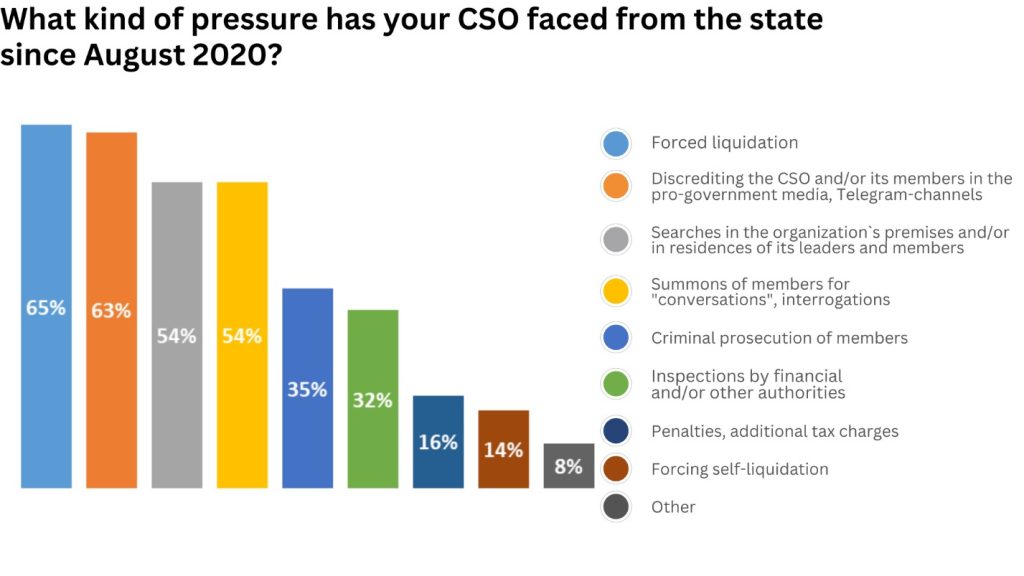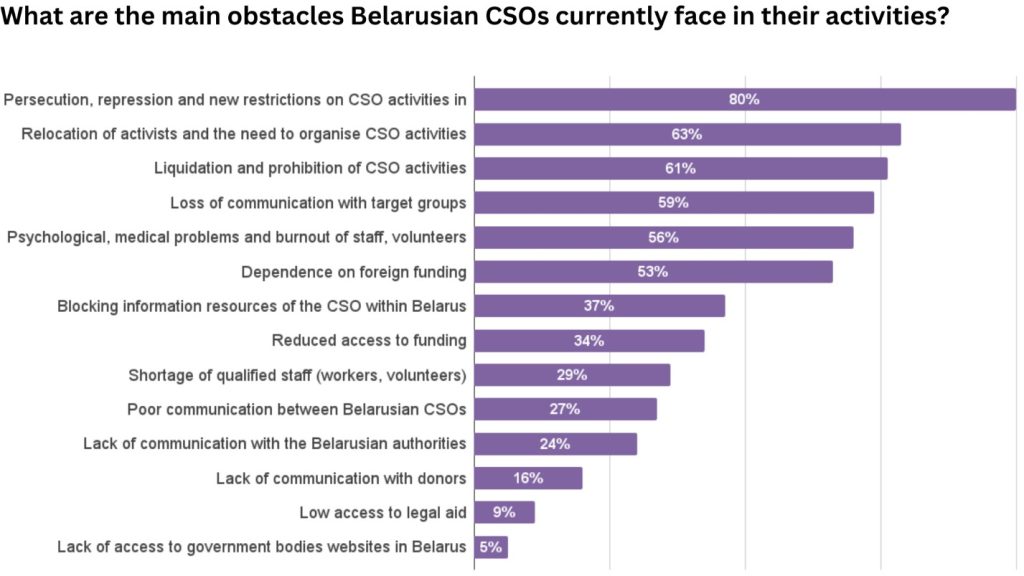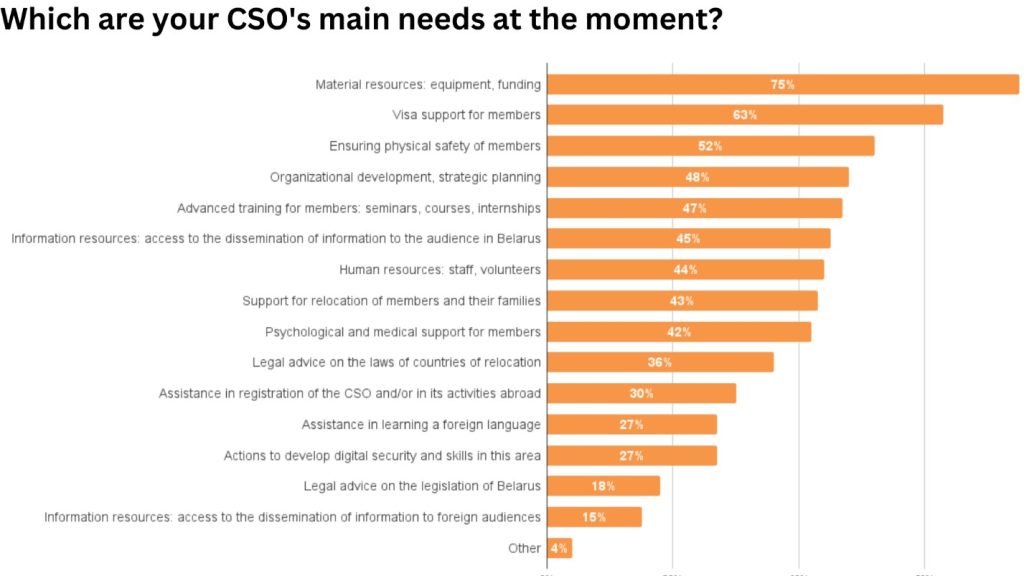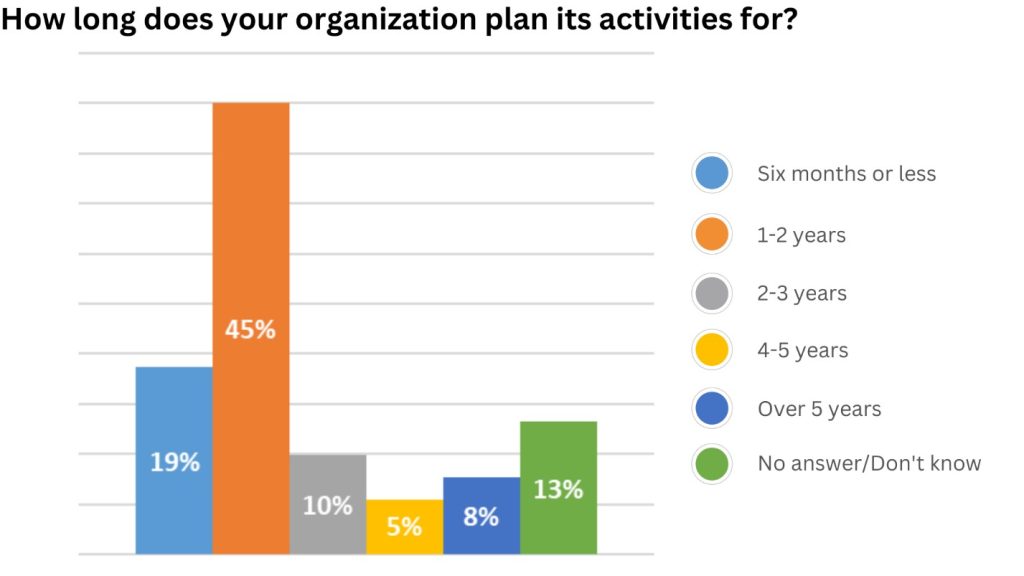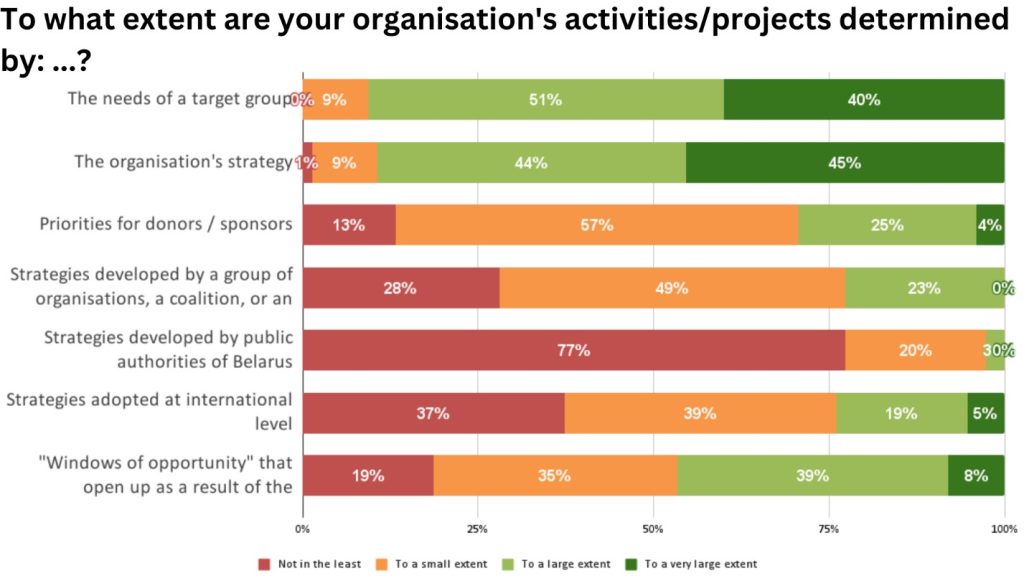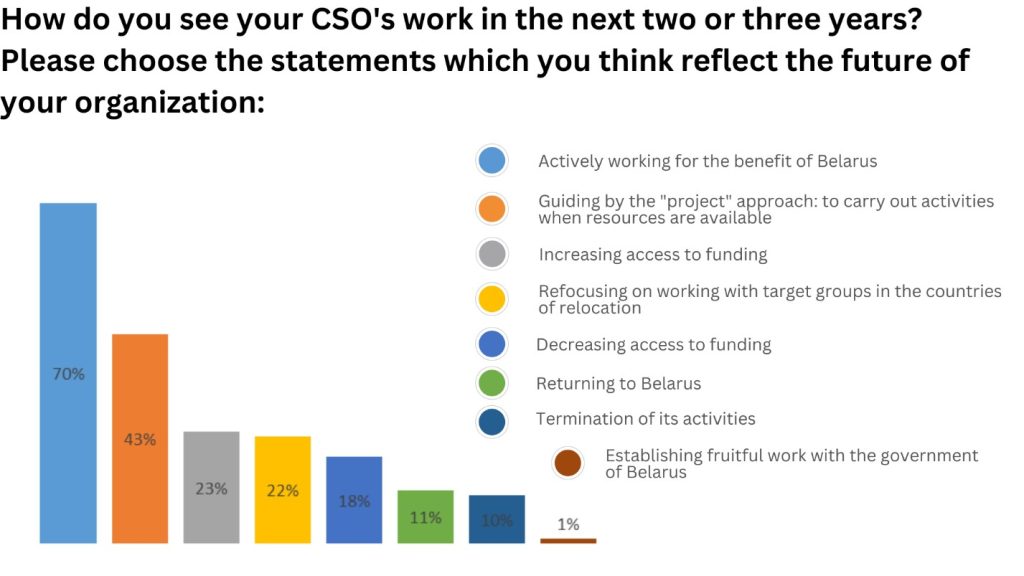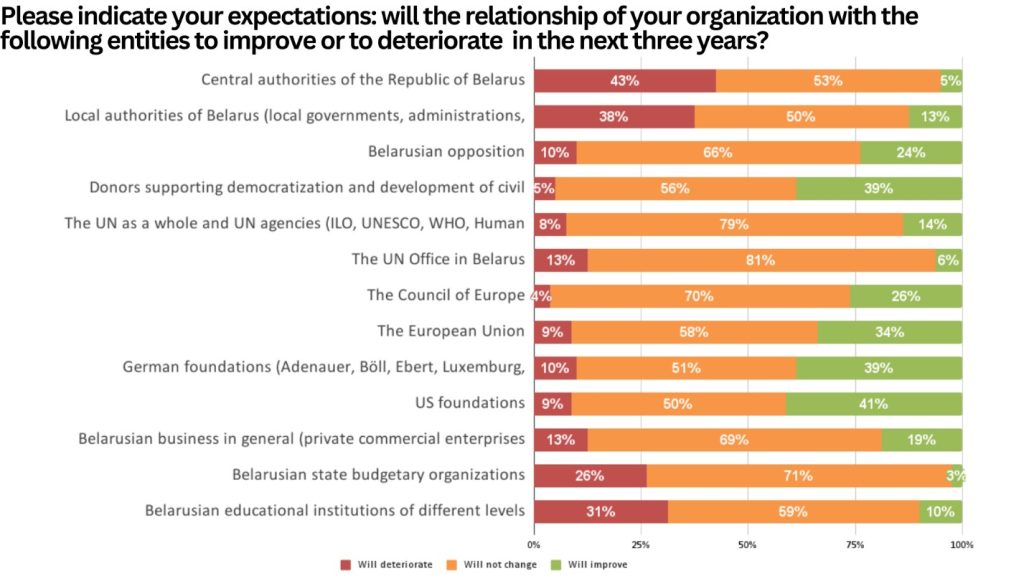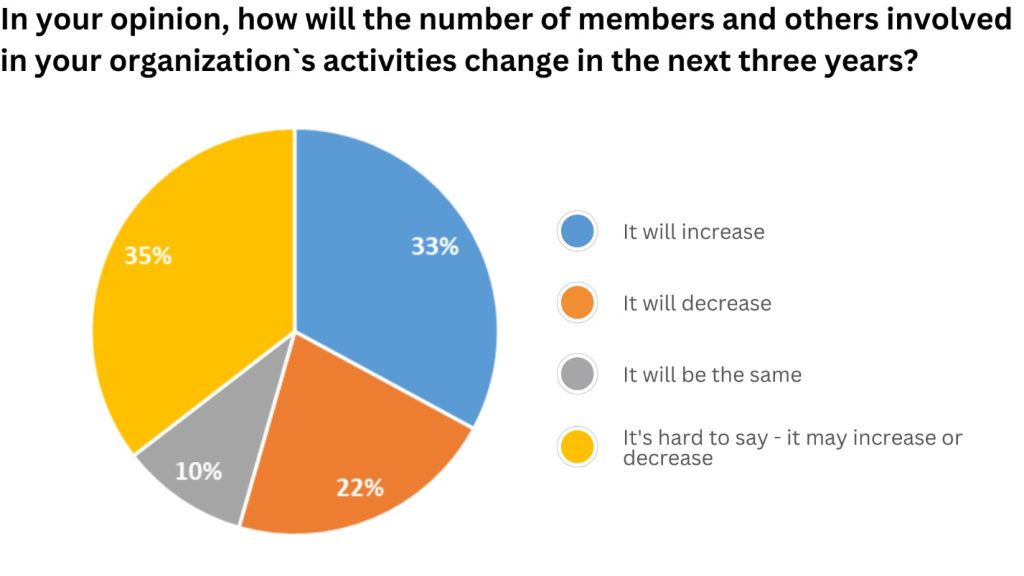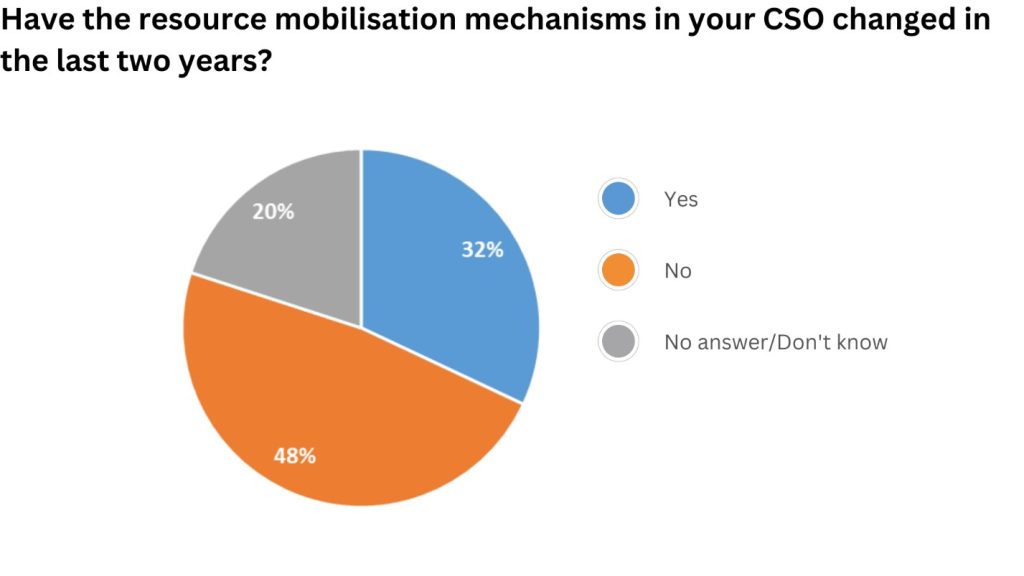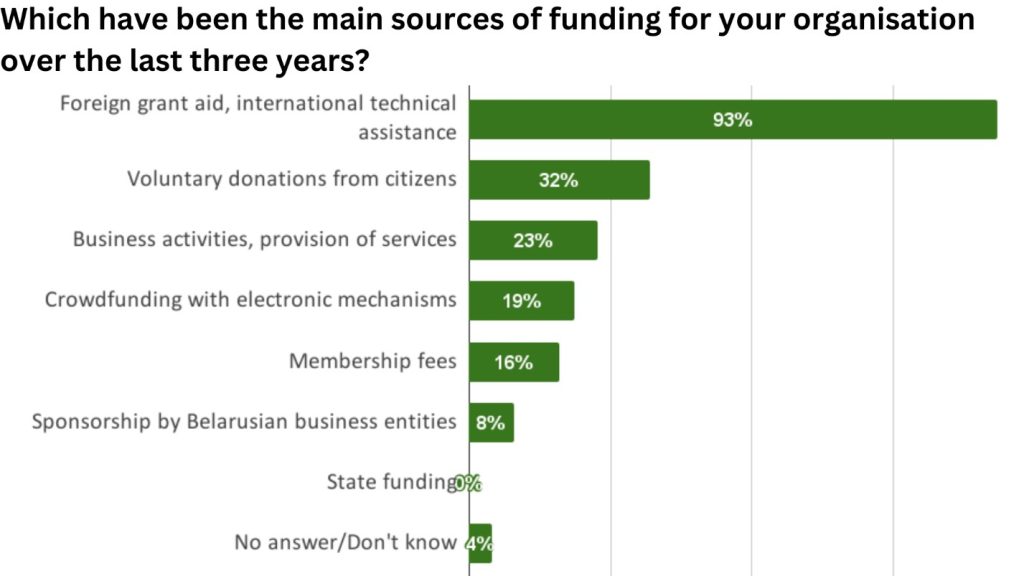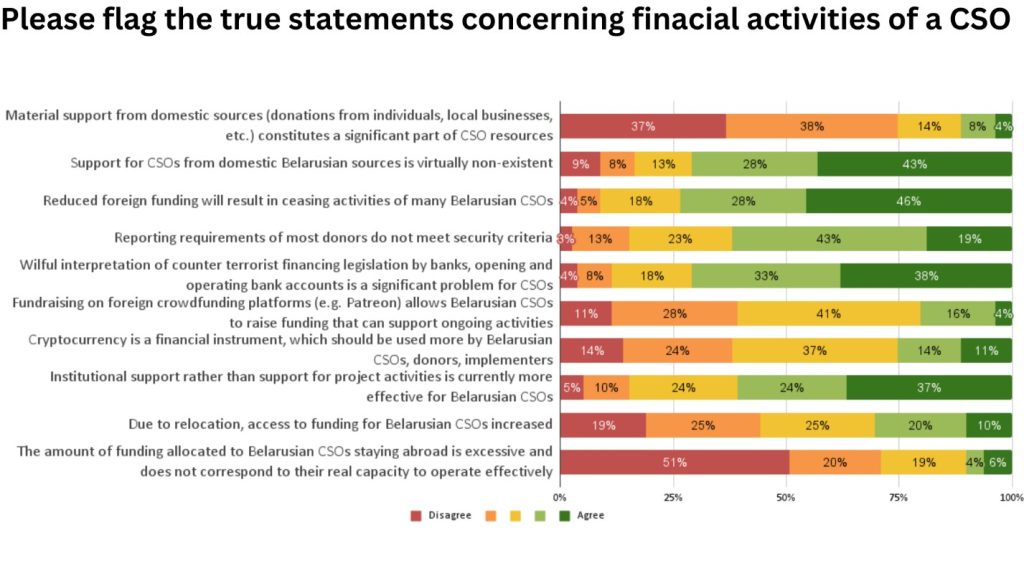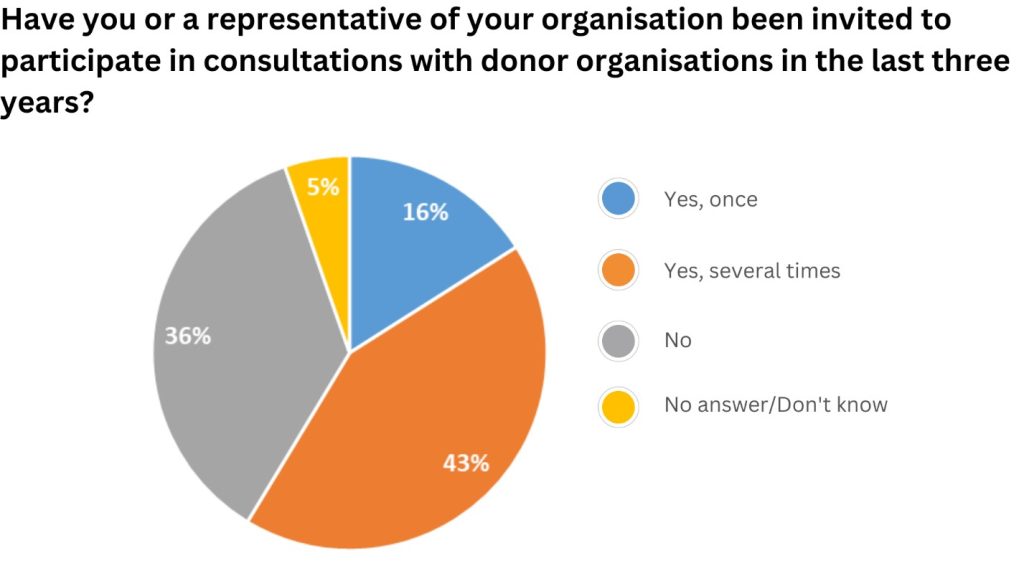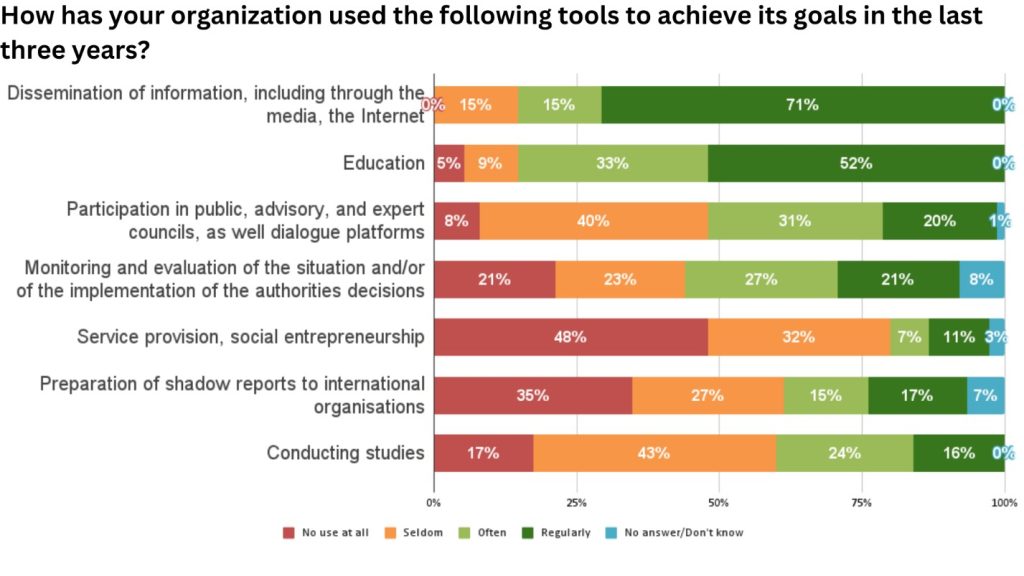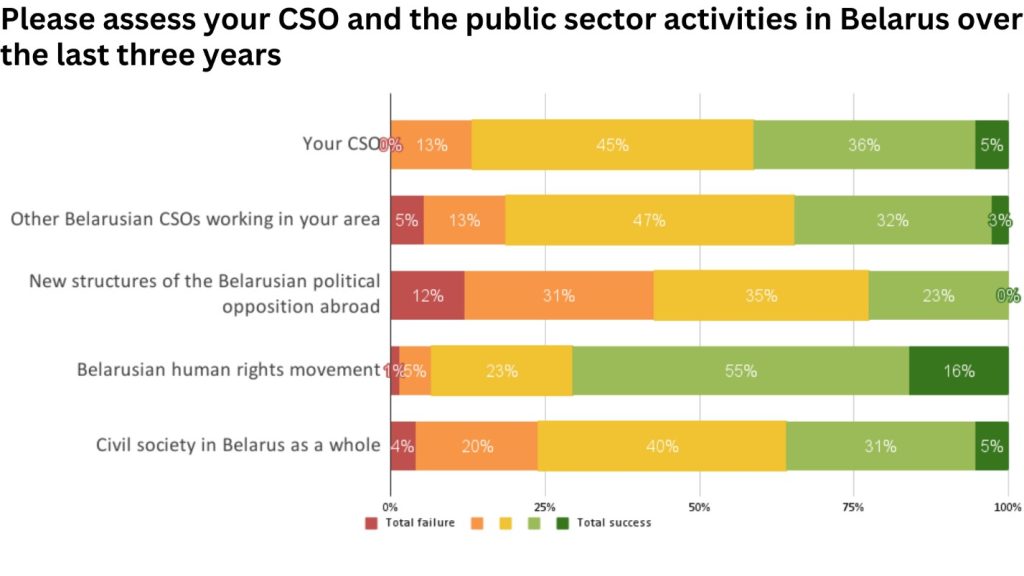STATE OF BELARUSIAN CIVIL SOCIETY ORGANIZATIONS:
SURVEY RESULTS
This paper is a summary of results of an anonimous survey conducted among the leadership of civil society organizations by the human rights organization Lawtrend in cooperation with partner organizations in December 2022.
For the purposes of the survey, civil society organizations were determined as both institutionalized structures (various forms of non-profit legal entities, their organizational structures, simple partnerships, etc.) and informal initiatives.
108 civil society organizations took part in the survey, meanwhile 74 civil society organizations did it in full (answered all mandatory questions in the questionnaire and “reached” the last question). The analysis of the answers to questions indicates the percentage of the total number of civil society organizations that answered a particular question.
SURVEY DATA
Time plan
45 % of CSOs plan their activity for 1-2 years
Activity planning
97% of relocated CSOs continue to work for Belarus
Activity direction
40 % of CSOs mark Human Rights as activity direction
Overview of Civil Society Organizations Participated in the Survey
Cooperation and Interaction of Belarusian CSOs
Specifics of CSOs in the Conditions of Relocation
The CSOs registered outside of Belarus, in addition to assessing the level of interaction with Belarusian actors, were asked to assess their level of interaction with various actors of the country of registration. The level of interaction was rated on a scale from 1 to 5, where 1 means "poor or negative interaction" and 5 means "complete cooperation and mutual understanding in joint activities"; additionally, one could also choose ‘Neutral status/No interaction’. The following results regarding the level of interaction were obtained:
| Interacting entities of the country where an organization is registered | 1. Poor or negative | 2 | 3 | 4 | 5 | Neutral status/No interaction |
| NPOs | 3% | 13% | 23% | 23% | 10% | 27% |
| Central authorities | 7% | 7% | 27% | 7% | 3% | 50% |
| Registration and tax authorities | 3% | 13% | 30% | 10% | 17% | 27% |
| Embassy of Belarus | 10% | 7% | 3% | 7% | 0% | 73% |
| EU countries` embassies | 7% | 13% | 10% | 7% | 23% | 40% |
| The media | 10% | 7% | 14% | 28% | 7% | 34% |
| Local authorities | 10% | 3% | 17% | 21% | 0% | 48% |
| Other Belarusian CSOs | 3% | 0% | 10% | 40% | 37% | 10% |
| Private commercial enterprises and entrepreneurs | 10% | 3% | 13% | 13% | 3% | 57% |
| Foreign structures of the Belarusian opposition | 3% | 3% | 23% | 40% | 10% | 20% |
Challenges and needs of CSOs
Prospects and Planning of CSO Activities
Financial Activities of CSOs
The situation varies among the CSOs with regard to changes in their fundraising methods: some CSOs say there is an increase in funding, including in connection with the relocation to safer jurisdictions; some CSOs, primarily those who participate in international technical assistance programs not engaging in independent fundraising, receive foreign grant aid with registration in the Department for Humanitarian Activities and stay in Belarus, emphasize that their funding has decreased. A number of the CSOs indicate the impossibility to obtain funds from foreign sources within the country legally and to participate in the international technical assistance projects; as a result, some of them completely reject of foreign funding. It is also pointed out that domestic funding has decreased. The CSOs use, as new instruments for raising funds, international crowdfunding platforms, Patreon, obtaining scholarships, and contracting on behalf of members of the organization to spend funds more flexibly and participate in projects of other organizations. It was also noted that there is competition for resources allocated for Belarus, including by Western foundations, the information on the ongoing competitions by donors is closed, and donors usually work with the structures familiar to them.
Other Issues Relating to CSO Activities
Sources for monitoring the current state of the civil sector in Belarus
Lawtrend - News on NGO regulation, analysis of regulations and standard-setting initiatives, regular monitoring of the situation of freedom of association, law and law enforcement, research materials on NGO regulation, the situation of civil society organisations and activists.
Human Rights Centre "Viasna" - Chronicle of human rights violations, regular analytical reviews of the state of the whole spectrum of human rights in Belarus and on selected topical issues, news of political trials and lists of defendants in political criminal cases.
CSO Meter - an annual monitoring of the situation of NGOs in 11 clusters of indicators inthe field of law and practice, commissioned by the European Commission in the Eastern Partnership countries, including Belarus with the publication of country and regional reports.
Belarus Expert Network "Our Opinion" – publication of analytical articles on the situation in Belarus on various parameters, including the "Belarus Yearbook" as a regular collective monograph on the results of the year including authors' articles on civil society development and other elements of domestic and foreign policy in Belarus.
B. Zvozskov Belarusian Human Rights House - publication of reviews and monitoring by various human rights organisations in Belarus.
School for Young Managers of Public Administration / Belarus Institute for Reform and Transformation of Public Administration - regular analysis and research materials on various aspects of civil society development.
Special Rapporteur on the situation of human rights in Belarus - statements on current human rights issues in Belarus, annual reports to the UN Human Rights Council and the UN General Assembly (both country-wide and focusing on selected thematic human rights dimensions).
Our contacts
Email :
